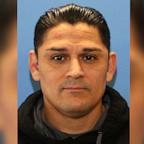Stephen Hawking Flip On Assisted Suicide Divides Right-to-Die Movement
The genius physicist says assisted death OK for 'pain and suffering.'
Sept. 18, 2013— -- Stephen Hawking, the brilliant theoretical physicist who has been on life support for 23 years battling ALS, has fueled a deep divide in the right-to-die movement by saying that those who have a terminal illness and are in pain should be able to end their lives "without prosecution."
"We don't let animals suffer, so why humans?" he told the BBC this week, noting that there should be adequate protections so that no one is condemned to die against their wishes.
"There must be safeguards that the person concerned genuinely wants to end their life and they are not being pressurized into it or have it done without their knowledge or consent as would have been the case with me," he told the interviewer, according to the Guardian newspaper.
Advocates said his position reversal will help fuel more acceptance of physician-assisted death in the United States.
But a prominent disability group opposed to favorable laws in Oregon, Washington state and Montana, said Hawking's words should not trump the "millions" of disabled Americans who say legalized "suicide" makes them more vulnerable.
Hawking, now 71 and the author of the scientific bestseller, "A Brief History of Time," once called physician-assisted dying "a great mistake," recalling a moment in 1985 when he had pneumonia and his first wife Jane Hawking had been given the opportunity to turn off all the machines.
Supporters of doctor-assisted dying welcomed Hawking's reversal on the topic.
"I think this will help allay fears and is pretty good news," said Barbara Coombs Lee, president of Compassion and Choices, the leading advocacy group for physician-assisted dying. "Stephen Hawking is probably the most famous person with a disability in the world."
"He has had an extraordinary good quality of life with pretty extraordinary medical care," she said. "Everyone understands that he really feels what it is like to be dependent on medical intervention"
"His voice carries a lot of weight when he says we can apply safeguards and people should be allowed to intend their death if their suffering is unbearable," said Coombs Lee. "It's a powerful voice and we couldn't imagine a person with more experience with medical care who is more vulnerable."
Hawking was diagnosed at age 21 with ALS, also known as Lou Gehrig's disease, a form of motor neuron disease that is terminal. His doctors told him he only had two to three years to live.
Approximately 5,600 people in the U.S. are diagnosed with amyotrophic lateral sclerosis each year, according to the ALS Association.
Life expectancy averages about two to five years from the time of diagnosis, but ALS is variable and many people live with quality for five years and more. More than half of all patients live more than three years after diagnosis.
Hawking is unable to move and communicates slowly through a computer.
In 2006, he became the poster child for opponents of assisted death, saying, "I think it would be a great mistake. However bad life may seem, there is always something you can do, and succeed at. While there's life, there is hope."
However, Coombs Lee said she wasn't sure that Hawking's latest remarks mean he had a "change of heart."
"He certainly was never a vocal opponent. He never was a campaigner against assisted dying," she said.
Withdrawing life support is legal in the U.S. and elsewhere, according to Coombs Lee.




